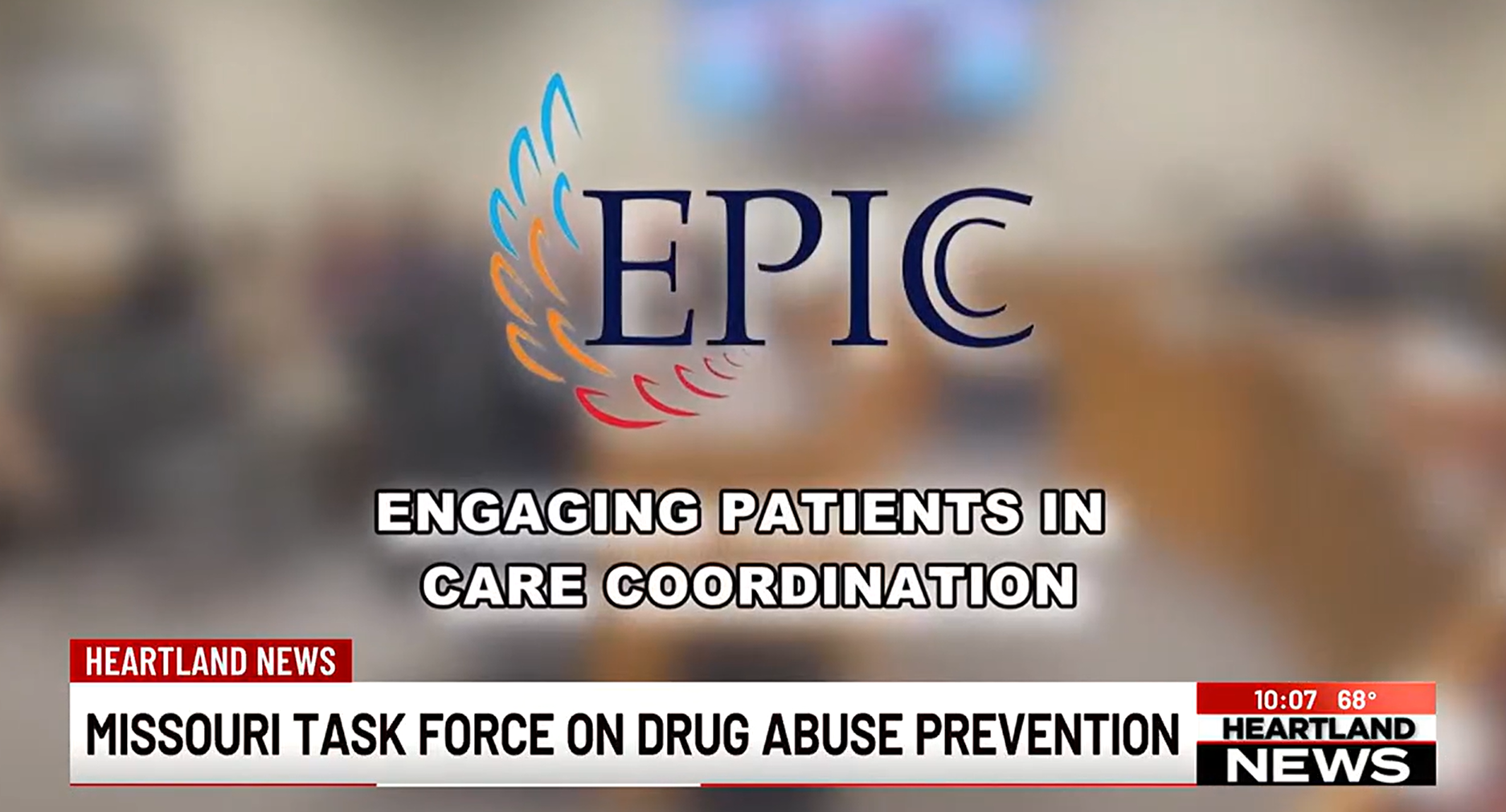News & Media
Explore BHN's News & Media Presence
Links to articles and publications about BHN.

BEACN Sustainability Retreat
In February 2024, Behavioral Health Network of Greater St. Louis, in collaboration with community partners, including SSM Health, Mercy Hospital and Camden Coalition, hosted a regional sustainability retreat informed by the work of Building Engagement to Address Complex Needs (BEACN). The event was held at the May Center (SSM DePaul Hospital). Discussions and activity was centered around: Exploring innovative strategies for long term funding in addressing complex care; Integration of healthcare and social services; and Collaboration to develop a map for sustained impact.
Pictured (from left to right) BHN staff: Jennifer Miller, Director of Community Programs; Anita Udaiyar, Director of Community Programs, Wendy Orson, Chief Executive Officer; Chris Hotard, Program Manager; Dana Silverblatt, Director of Community Programs; Bradley Wing, Director of Data Sciences & Analytics.
Nami Gala
Anita Udaiyar, Director of Clinical Strategies, and Chris Hotard, Program Manager of Complex Care recently attended the Annual Putting Care at the Center Conference organized by Camden Coalition in Boston where they had the opportunity to showcase the Building Engagement to Address Complex Needs (BEACN) project work through a Beehive Networking Presentation this format allowed them to engage with various professionals and organizations, fostering connections on a national level. Their networking efforts resulted in establishing meaningful connections that will contribute to the advancement of our complex care projects.
Missouri’s Substance Abuse Prevention and Treatment Task Force
Missouri’s Substance Abuse Prevention and Treatment Task Force recently met in the state capitol, Jefferson City, to discuss ongoing substance use crisis, which costs the state of Missouri over $8.5 billion annually when accounting for intersectional factors. A key focus of the meeting was increasing dedication to the prevention of substance use disorders (SUD) and improving effective treatment for opioid use disorder (OUD).
EPICC (Engaging Patients in Care Coordination) has played a pivotal role in increasing access to treatment for individuals with SUD and has spearheaded efforts to promote prevention strategies. Carla Collins, EPICC PRO Clinical Manager/SOR Supervisor, and Austin Esposito, Peer Recovery Coach for EPICC’s Eastern Region, attended the meeting to advocate for the importance of EPICC and the role of peer support in recovery. During the session, Ashley Stanley, a person in recovery, shared her experiences with OUD. Ashley began struggling with substance use starting at the age of 12. After 21 years of substance use, Ashley was connected with a Recovery Coach through EPICC. Ashley felt supported and uplifted by her coach, who utilized positive affirmations and peer support to help her recovery journey.
After over 5 years in recovery, Ashley now works with EPICC to help others in recovery. Ashley’s testimony speaks to the importance of peer support, access to medication assisted treatment (MAT), treatment programs, and other resources that support people’s basic needs in recovery.
Representative from the task force State Rep. John Black is eager to expand Missourians access to the care that Ashley received. Dr. Heidi Miller of the Department of Health emphasized the immediate changes that can be made to treating SUD, specifically noting the role that primary care physicians play in diagnosing and treating SUD.
With a focus on expanding access to vital recovery resources and improving physician recruitment amid the state’s healthcare workforce shortage, the task force is committed to implementing solutions that can reduce the devastating impact of the opioid crisis across Missouri. EPICC remains central to this mission, helping to reduce opioid-related deaths and provide life-saving support.
BHN in the Media
Dunnica Sobering Support Center Empowering Recovery One Visit at a Time
EPICC’s Innovative Rapid Access Treatment Expansion (Substance Use & Addiction Journal)
The Behavioral Health Network and the Missouri Institute for Mental Health authored a journal entry evaluating the innovative Rapid Access component to the EPICC (Engaging Patients in Care Coordination) programs. The paper was selected for the 2025 Quarterly SAJ Editors’ Choice Award (Substance Use and Addiction Journal in Volume 46, Issue 3).


